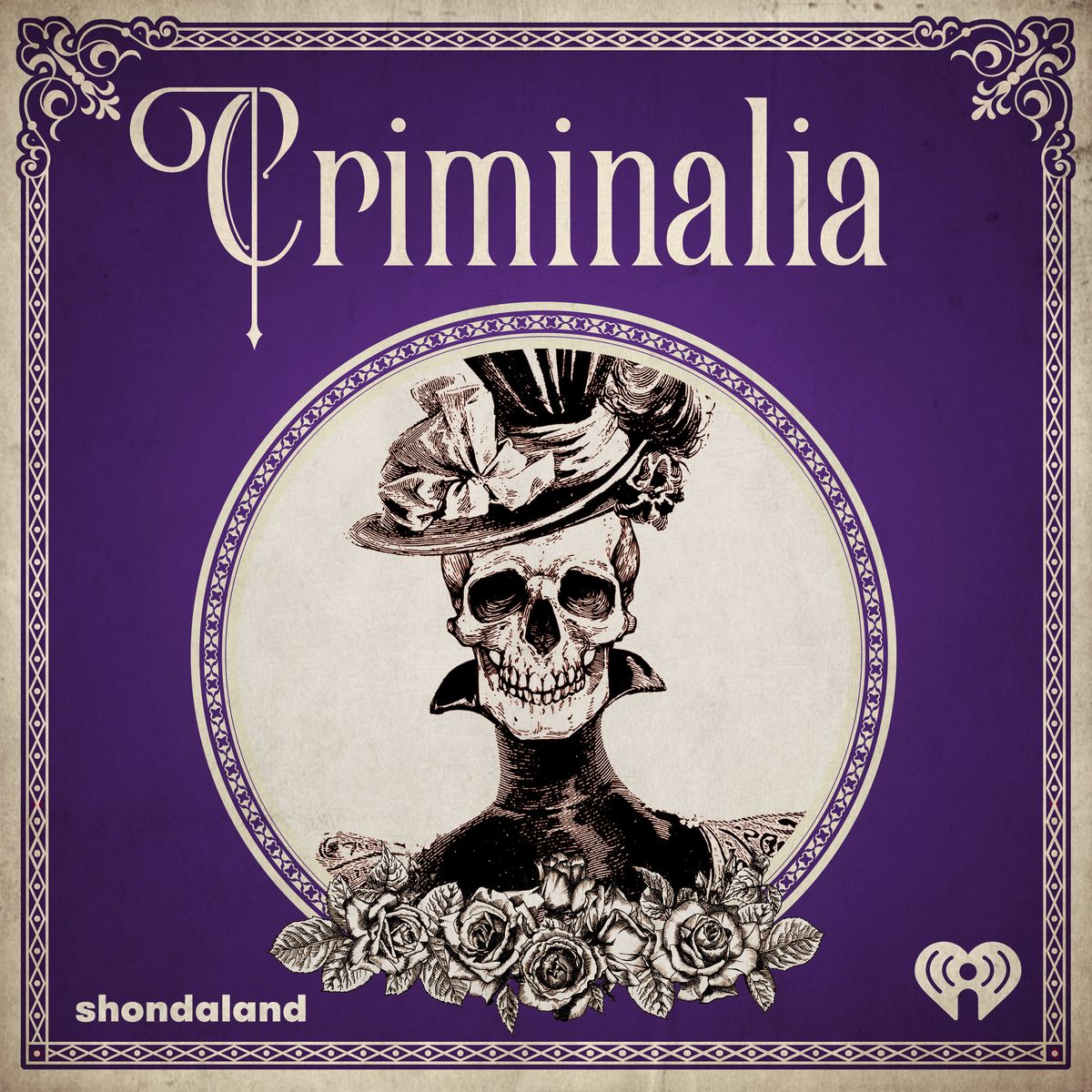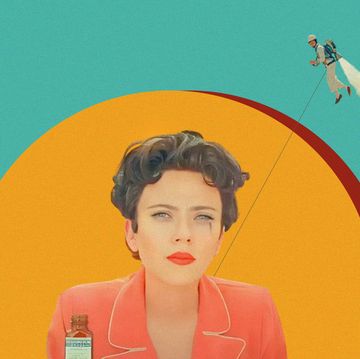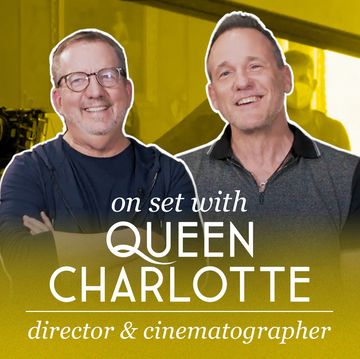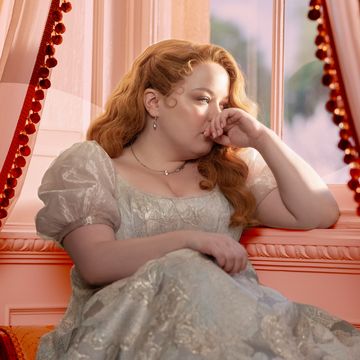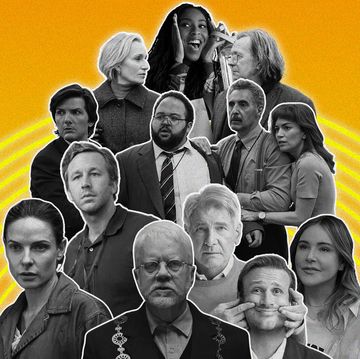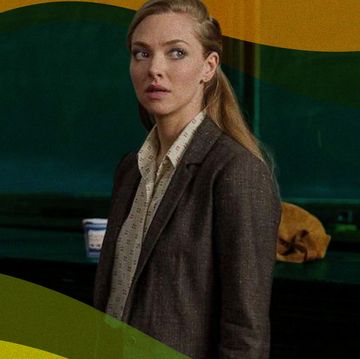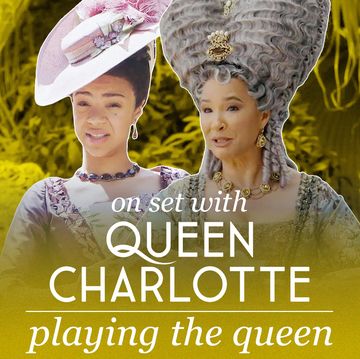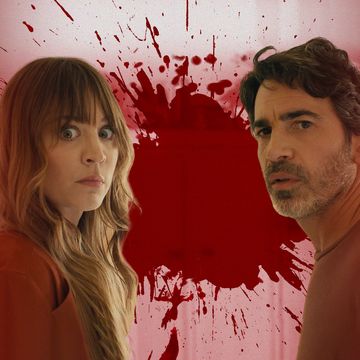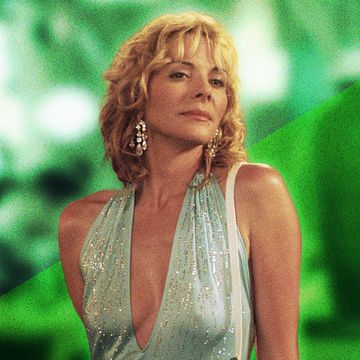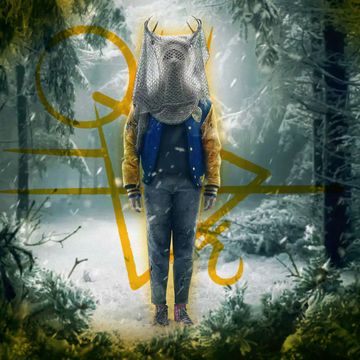Maria Trimarchi and Holly Frey first met while writing and editing the curiosity-driven website HowStuffWorks. Years later, the pair still have an enviable friendship, the kind that leads to the podcasters often finishing each other’s sentences — when they’re not peppering the conversation with playful inside jokes.
Now stretched between Oregon and Georgia (“I keep trying to get farther away but she keeps following me,” Frey jokes) Frey and Trimarchi have reunited for their new podcast, Criminalia, which was recently announced as one of three new podcasts in Shondaland Audio’s upcoming slate of programming. Similar to Frey’s award-winning podcast, Stuff You Missed in History Class, each episode of Criminalia unpacks a person from history — usually a woman — who has committed a murder via poison. Who was she? What circumstances led up to the crime? And did she actually do it? For those who prefer their top shelf storytelling with a sidecar, Frey also offers a thematic cocktail recipe. Because, well, why not?
For the two hosts, their research (which they’ve already finished through the second season), has been a chance to indulge their analytical side, even if it has led to more than a few macabre Google queries. (Like, “How much arsenic can kill a 200-pound man?” laughs Trimarchi. “I hope nobody ever looks at my search history.”) But most of all they want listeners to know that history is fascinating…and really fun.
Ahead of the podcast's premiere, we sat down with the pair to learn about the character that inspired their show, how — even when talking about death — they keep things light, and why they’ll always have a soft spot for supposed bad girls.
LAURA STUDARUS: Being a podcaster seems like a great job to have now that everyone is living vicariously through media.
HOLLY FREY: Maria is new to the game, which is sort of great. I have been doing it for a long time and have always wanted to do a project with Maria and she has been amazing stepping up to the mic. She's such a natural you would never know this was her first project.
MARIA TRIMARCHI: It just turns out that I love talking into the microphone! I had no idea about that myself. I sit in my chair and like to think about when I was a kid and I would watch WKRP in Cincinnati. I just got into it.
LS: How did the core concept of Criminalia start coming together?
HF: I don't even remember how far back, but Conal Byrne, he's our president, brought me an article he had found about Giulia Tofana [an Italian professional poisoner] and asked if we could do a podcast series about her. I said, no, because the information on her is a little bit thin, unless you are fluent in Italian, and happen to live in Italy. We couldn't draw this out into a whole series but we could do a series about other lady poisoners and include her. We talked about that being just a season of a bigger show that I had kind of told him I thought might be interesting, which is to talk about true crime but with a historical perspective.
LS: I feel like the angle from which you come at the stories dramatically sets it apart from other true crime podcasts.
MT: One of the things that I really like about how we structure our show is we don't assume that anyone did any of these crimes. I think because we're talking about women who used poison in history, we find a lot of times that poisoners and adulteress is the same word in that language. Or any woman who might be looking for a little power or have an abusive husband, we take a look to see what her circumstance was, not necessarily the fact that she may have poisoned between like one and 12 men and was executed for it. And I think that that gets lost in a lot of the other stories that are told. And sometimes the crime today is not the crime that the woman committed, but the crime is more against her than it was against the 12 men that maybe she's suspected of poisoning. Because people like to point a finger and just yell, "Witch!"
HF: Oh, Maria, you did that to me last week.
MT: You're 3000 miles away so I don't have to see the consequences.
LS: So, when you are dealing with these stories, where it’s about murder in an era where feminism hasn’t been invented, how do you how do you keep it from getting too dark?
HF: I will say this about both Maria and I, and you may have gotten this, I don't think either of us take ourselves too seriously.
MT: I completely agree. I think that we can we try to keep it a little bit lighter, because I think you can very easily slip into the blackness of it. There’s sort of the "Aha!" moment, and when you have that moment where you kind of connect with her, and it doesn't really seem like her story is real dark. It seems like you're trying to do justice for her in trying to get her story out. And I really liked that part of it. Because otherwise, she's just sort of two sentences in the history book.
LS: What kind of details does it take to make you interested in tackling a story?
HF: There’s almost always something that comes up. One of our upcoming episodes is about Sally Bassett, who was an enslaved woman in Bermuda, who was put to death for killing her granddaughters' enslavers. And there is one part of her story where, during the trial, her granddaughter actually gives her up. And it can seem very much like she was turned on, but I think if you look at the actions of this woman and what was going on, the greater likelihood is that she told her granddaughter, give them my name, this gonna help you. What we've done so far is turned the crime story around so it makes it personal.
LS: What is your investigation technique, like when you're dealing with these characters who aren’t featured in history books?
MT: I try to do both research on the historical culture, society, the perspective of what we're going to be looking at. Where does this woman land in history? And then I also try to look at her personal history. And a lot of that can come from libraries, it can come from church records, it comes trial records. It really depends on the era that we're talking about. We're talking about a woman who was an emperor in ancient Rome with a lot written about her brothers, but maybe not so much about her, but she's in their stories. You sort of start picking pieces together from the family stories and running down different stories that you've heard about her.
HF: Normally, the way that we've worked so far is Maria writes the first half of each episode, and then I give it a second pass. I look at it and maybe go, "Hey, but what about this?" That's usually needed to go down a rabbit hole and find what we need to. And in that way, it works out sort of beautifully for the two of us to be passing it back and forth, because we'll each automatically pick up slightly different things. And if we can satisfy both of our curiosities, we end up with a really nice full picture than we might otherwise have.
LS: By the end of all your research, have you formed a personal opinion on each subject?
MT: I would say yes. Sometimes it's pretty cool that someone has absolutely poisoned 13 people, whether she was tried and executed or not. And sometimes it's very clear that she did commit the crime that you're talking about, and sometimes it's sometimes it's pretty clear that she absolutely did not. But I feel that every story we've told so far it's been clear at the end.
HF: I would agree. I think it usually a pretty sharp picture emerges. The thing that becomes really interesting is thinking about why they did what they did. Giulia really started this whole show to become a thing. You know, she is sort of talked about in very headlining ways as the woman in Italy who killed 600 men. Well, she helped in the deaths of about 600 men. But when you pull back that sensationalism, you realize that what was actually driving her was that she was helping women get out of abusive marriages, the only way they knew how.
MT: Exactly. Like, we will talk about the Queen of France, who, maybe as a power play, poisoned somebody — but that's no different than her brother who did the exact same thing. Because it's all about power and inheritance and getting land and marriages. But when you have someone like Giulia Tofana, you look at her you go, she wasn't doing it for money. She wasn't doing anything other than perhaps being an abused woman herself, which we couldn't confirm. But we had a pretty strong feeling about her family. And you see her story unfold in a very different way than then poisoners of royalty and things like that.
LS: Do you plan on expanding the show to other criminal acts throughout history?
HF: We already have our second season planned. It's going to be about historical stalkers. In that case, some are men, some are women. Some are men who stalked other men who were successful or talented in a way they wish they were. At that point, it really breaks out and stops being woman-centric, although certainly many women have been the victims of stalkers, but it's a completely wide open space at that point.
LS: So, it's as much about criminals as it is about the human nature behind it.
HF: For sure. And we have the same examination of what's really driving this person's obsession with another person? What is it about their life experience that put them in the mental headspace where this seems like a reasonable way to behave?
LS: Do you have any historical figures you’re particularly interested in?
HF: From doing Stuff You Missed in History Class for so long, everyone knows that my historical obsession is Queen Victoria. I love her. She's very problematic. When you think about her reign and the things that Great Britain was doing while she was leading the country, all of the imperialism and claiming a lot of lands that were already perfectly well occupied by Indigenous people. There with societies and cultures that had long been established. That is all very problematic with Queen Victoria herself, but also very fascinating to me. And so, I could see both the ugly and the beautiful about her and just makes her that much more.
LS: I'm looking forward to seeing how Criminalia develops. It seems like there’s a lot of different ideas in play.
MT: I always have a moment where I'm like, "I love this one," because I end up loving this person. She's great because of X, Y, and Z. And then the next week comes and I'm like, "She was totally badass!" So, I am enjoying all of season one, and the writing of it, and the hosting of it. It’s been a really good time. And I hope that people hear that while listening to the podcast.
Laura Studarus is a Los Angeles-based travel writer with bylines at Fast Company, BBC Travel, and Thrillist. Sometimes she can go several hours without a cup of tea. Follow her adventures on Twitter.
Get Shondaland directly in your inbox: SUBSCRIBE TODAY
